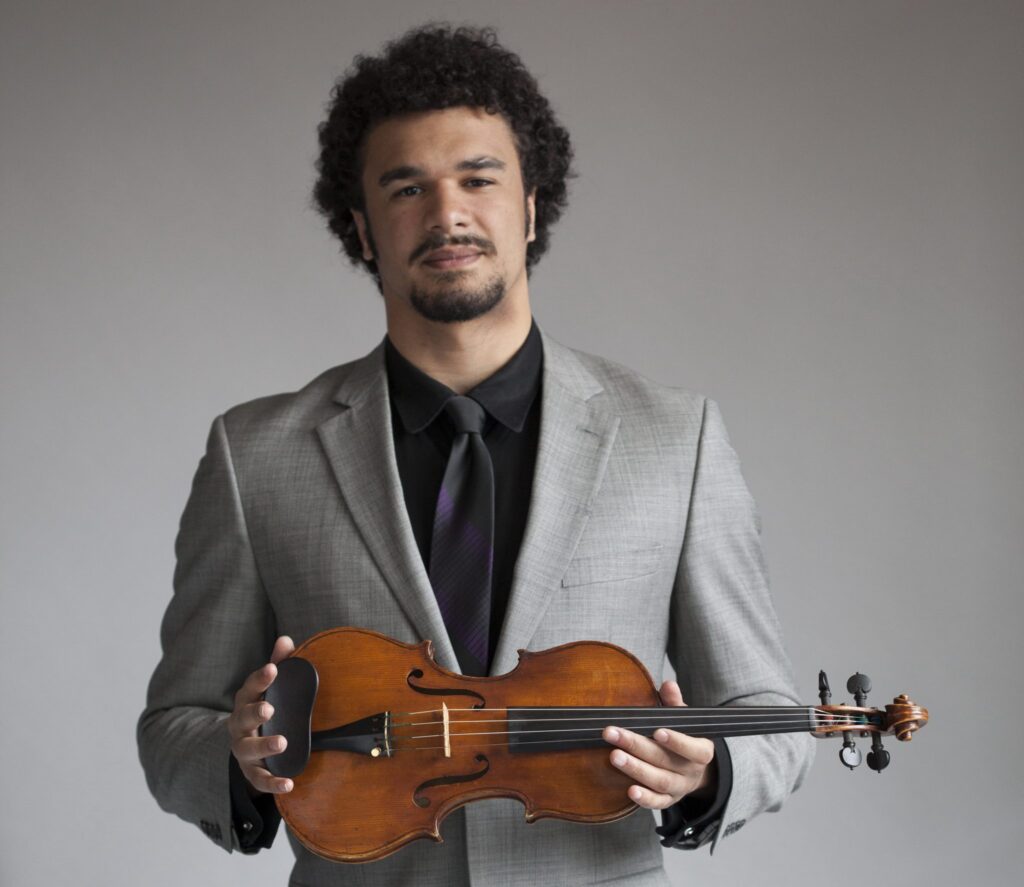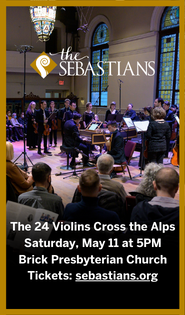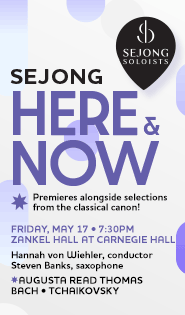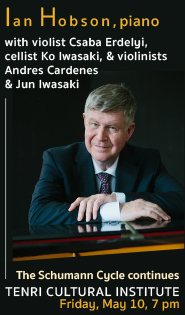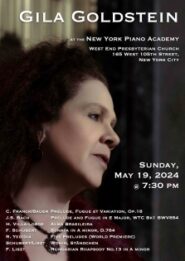ACO’s Sonic Festival off to a grim start with self-referential opener
Worlds collided Thursday night at Merkin Hall, where the American Composers Orchestra’s 2023 Sonic Festival opened and the Ecstatic Music Series concluded its own season with the very same concert. In the middle of all this was a third, and central, force, Curtis Stewart.
Stewart is the new artistic director of the ACO—a violinist and composer, a member of the PUBLIQuartet and The Mighty Third Rail ensemble. This concert was much more than just a solo recital, it was a showcase for his new album, of Love, released today on New Amsterdam records. Stewart has explosive, wide-ranging talent, a unique level and type of musical charisma and energy.
Unfortunately, this opening performance of the Sonic Festival took most of the focus away from Stewart’s music-making and instead centered on the musician as a person, which was a crippling flaw.
This was a self-referential display of personality through music and words, but not personality as expressed through music. Too much of the evening consisted of Stewart telling the audience who he is, dominated by his mourning over the 2021 death of his mother, jazz and world music violinist Elektra Kurtis (Stewart’s father is the great jazz tuba player Bob Stewart).
The concert opened with Stewart dipping into an extended sequence from his album, playing, speaking, and singing solo accompanied by audio and video tracks.
His moment to moment violin playing was formidable. He has a gorgeous sound and a deeply musical sense of phrasing—not limited to classical aesthetics—but an invigorating use of ideas that reminded one of great progressive rock violinists like Jean-Luc Ponty.
But these moments were discontinuous, by design, with a Greek folk tune set against a Steve Reich riff, then jumping to something else. The program didn’t hold the music together; that was left to Stewart’s texts, which were nowhere near as advanced or articulate as his musicianship. One did not doubt the sincerity or the reality of this expression, but this edged out of music into monologue, and the writing, though clearly sincere, was too often sophomoric.
There were two duets with jazz pianist Aaron Diehl, a terrific and virtuosic Blues (Deliver my Soul) composed by the important pedagogue David N. Baker, followed by Stewart’s arrangement of Oscar Peterson’s Hymn to Freedom. With a call-and-response structure, this kept falling apart and rebuilding itself at each switch of musicians, and it felt like an encore piece, meant to impress rather than express.
This was a long concert, featuring onstage conversations with radio host John Schaefer and additional remarks from Stewart that he delivered in between pieces.
The second half had the violinist backed by a big, solid string orchestra made up of members of the Harlem Quartet, PUBLIQuartet, students from Juilliard and the Kaufman Music Center, and notables Mazz Swift, Eleonore Oppenheim, and Andrew Rothstein, conducted by Peter Aksim. The music here was more ambitious, though most of it was still bound to Stewart’s personal ruminations, including the opening City’s Son, a rap performance with a classical musician’s style of rhythmic dynamics, verbal flow, and four-square electronic beats.
The mood and tone was mono-dimensional and nearly relentless so that any new idea was quickly drowned by the monotonous emotional landscape. There was no space for small feelings, nuanced moments, even quiet dynamics, everything was big. Stewart’s violin concerto Embrace, apparently was meant to be accompanied by spoken comments from students talking about music, but this night was accompanied by video footage of his mother. Three arrangements from Samuel Coleridge-Taylor’s 24 Negro melodies pounded the beauty and elegance of the original material into submission under grandiose emotions.
The best part of the concert, and a truly excellent musical experience, was KNIGHT Music, Stewart’s arrangement of music from Joseph Bologne’s Violin Concerto No. 9. Bologne’s music is full of personality, able to counter Stewart’s thinking with some variation. Space opened up, light came in, Stewart’s own playing was light-footed and witty. Making music about something other than himself, he made great music.
In the end was Gone, another album except, Stewart playing against more spoken word, the other musicians gradually walking off the stage, before Stewart himself put his violin down and joined them.
The 2023 Sonic Festival continues through June 12 at various locations. americancomposers.org
